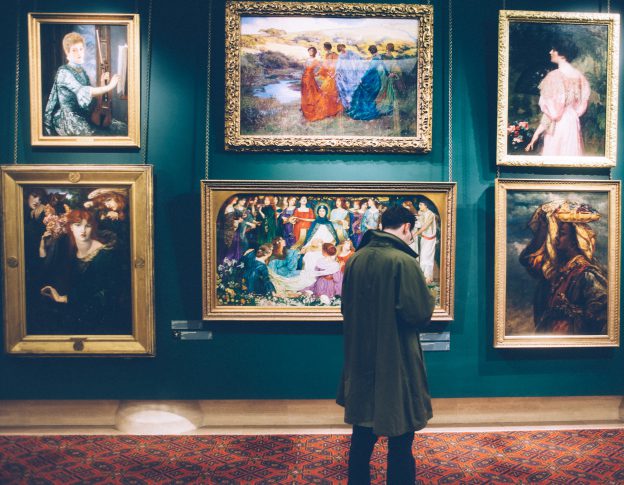Frames get in the way
Memories of training in London come alive and bring me joy whenever I meet up with Julia Messenger again. We trained together in the very early nineties, and still have so much to talk about, not least regarding the Technique, but also about everything else. Frequently, ‘everything else” turns itself back to the Alexander Technique.
We were walking through London last week and she described her experience of the Bonnard exhibition that was on. One of the things she discussed were the frames on the pictures: “There was more than one unframed canvas – there is a single small room dedicated to five of them, nailed to the wall as he would have painted them in his studio. These artworks, unencumbered by heavy, clumpy frames do seem to hit you directly in the eye and the experience was perceptively different from the other paintings.”
This got me thinking how often people frame the things that they do and say, and how this gets in the way of direct experience. As if reality were not enough, we go about ‘framing’ who we are with stylised gestures, turns of phrase, facial expressions or postural shifts. These are matters of habit, usually, rather than the creative animation of what we say. It would be like dressing up nature. As if we we need a little help, we put on a smile, feign some interest, or maintain some subtle pretence or other. But it’s a question of ego, and it makes us false, alienates us from ourselves and others from us, and keeps peace and self-acceptance at bay.
And this is where the Alexander Technique comes back into the picture – through it, we learn to face up to things as they actually are, let ourselves be as we actually are, and present ourselves to the world as we actually are; that is to say, unadorned and free of the myriad habitual patterns of being to which we get so accustomed that we don’t even know they are there.
All this is not to suggest, however, that there isn’t tremendous value to be gained from reframing the way we understand or approach matters. Reframing gives us a different lens or understanding of ourselves, and enlarges our understanding.
We might see something as a problem, for example, but on a second look take a larger view of it, and see how a problem may be the result of the choices that we have made. This may suggest a new course of action that we might otherwise not have considered.
I was fortunate that my concern about my rounded shoulders led me to lessons in the Alexander Technique. It helped me reframe my problem and I soon learnt that my shoulders are not an issue of real concern, and certainly not the issue regarding my posture. I was misunderstanding posture and not taking a holistic view of myself. If I had tried to “fix” my shoulders, as a result of poor insight and lack of understanding, I would have caused more problems for myself, and never have redressed my personal difficulties in the way that the Alexander Technique has made so easy. Instead of seeing my shoulders as a problem to be solved, I see them as a pointer to the development of a new relationship with myself.
Life is an ongoing exploration, a rediscovering and enlarging of our frame of consciousness. So I am not attached to the conclusions that I come to. There is always scope for reframing things. And let’s be clear, reframing is an art, something Alexander Technique has helped me achieve. But dolling ourselves up with the interfering frames of artifice leaves us greatly worse off.
© 2019 Barry Kantor